If you like food and haven’t seen this udon noodle spaghetti western ahmazing film – well git on down here!




of previously screened movies
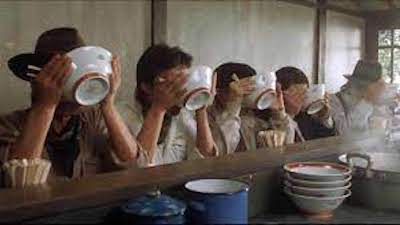
If you like food and haven’t seen this udon noodle spaghetti western ahmazing film – well git on down here!
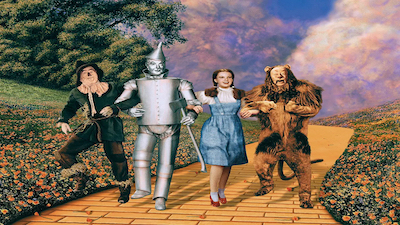
There’s no place like home – unless it’s a halcyon dream of a dystopian future…..
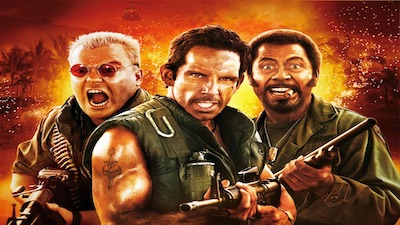
“ I am playing a role within a role within a role so I know who I am.”

AS
YOU
WISH…

“Hey mister! I don’t mean to be tellin’ tales out of school, but there’s a feller in there that’ll pay you ten dollars if you sing into his can.”
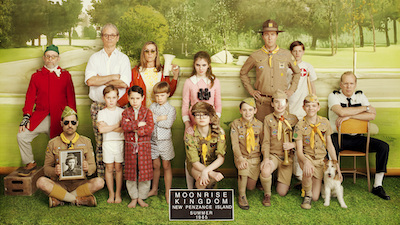
Charming, enveloping, seriously funny, and beautiful.
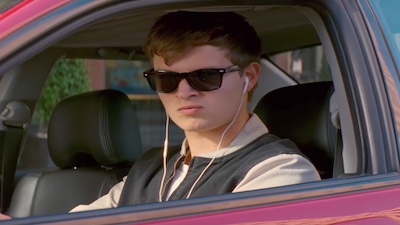
Come for the thrill
stay for the tunes
(and the burger & fries – oh and cocktails)

I got chills, they’re multiplying
And I’m losing control
Cause the power, you’re supplying
It’s electrifying!
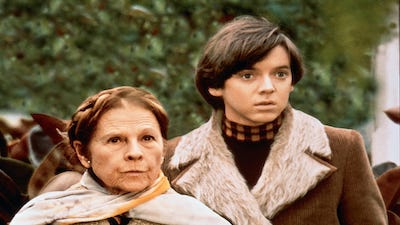
Easily one of the best movies ever made.
And if you want to be high, be highAnd if you want to be low, be low‘Cause there’s a million ways to goYou know that there are

Who do you blame when your kid is a brat
Pampered and spoiled like a siamese cat
Blaming the kids is a lie and a shame
You know exactly who’s to blame
The mother and the father
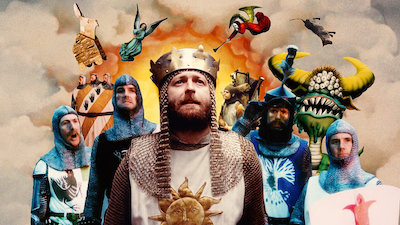
Help! Help! I’m being repressed!

Just keep swimming, just keep swimming….
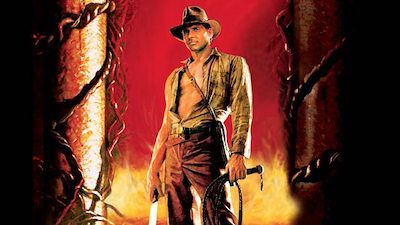
George Lucas melts Nazi Faces

Top notch film making by Wes Anderson!
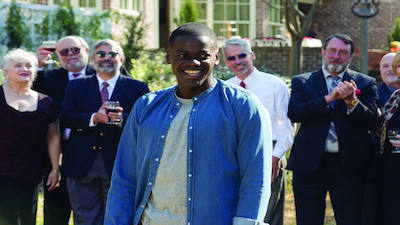
Directed and Written by Jordan Peele
Horror movie about a guy who goes to visit his white girlfriend’s family for the weekend. Inexplicably he doesn’t immediately run when they start talking about Tiger Woods.
| Factors | (1‑5) |
| 13.4% of people surveyed strongly identify with the protagonist of this movie | 4 |
| 86.1% of people surveyed don’t entirely identify but are doing a respectable job of faking it | 4 |
| .5% of people surveyed just got here and are now extremely confused | 5 |
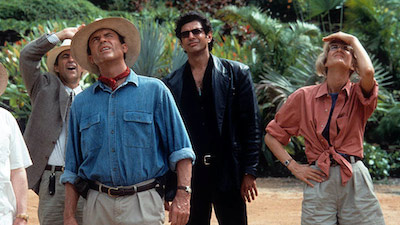
Jurassic Park
Directed by Steven Spielberg
Written by Michael Crichton and David Koepp
So what actually is the difference between khakis and chinos? We’ve all wondered, although some time has passed since this was a salient question. There are a few qualified answers but the most notable is that khakis have pleats, which provide the extra material needed to cinch them all the way up at your navel, thus preventing them from sliding right off your body. Nowadays we prefer to wear our pants below our asses, and khakis have fallen out of vogue in favor of the flat-fronted chino. That Sam Jackson line from Jurassic Park, “Hold on to your butts”, was prophetic in this regard. Ah but that was the halcyon era of the early 90’s; there was an unparalleled roominess to clothes in those days, mostly to alleviate peoples’ fears about being chased by Seventh Day Adventists, and everyone got to wear rad sunglasses and movie heroes were consistently dressed like either Keith Richards or Guatemalan coffee merchants . It was a wonderful era, brimming with hope and comfort and in retrospect easily worth all the reptile attacks.
| Factors | (1‑5) |
| Neckerchiefs | 4 |
| Waisterchiefs | 3 |
| Tricking your little brother into grabbing the electric fence | 4 |
| The other Attenborough, the older brother | 3 |
| 1991 Self-Driving Ford Explorer EV (?!!) Yes Please. | 8 |

Directed by Lee Unkrich
Written by Adrian Molina and Matthew Aldrich
Its All Souls weekend here in the Old Pokey and we here are waxing thematic on the patio wall. If you haven’t seen Coco yet it is a terrific movie about a kid from Michoacán who is bedeviled by the Curse of the Mariachi and subsequently finds himself stranded across the border in a strange land that is brimming with opportunity.
A Few Thoughts:
| Factors | (1‑5) |
| The raw power of the chancla | 5 |
| It is one of the oldest dog breeds on earth and and it is hardly “goofy” | 3 |
| Official participation of the Roman Catholic Church (since 1911) | 0 |
| You catch that cameo by Jorge Negrete? Totally badass. | 4 |
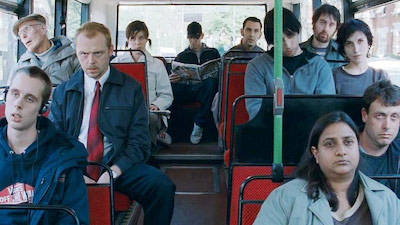
We’re screening our November Cinema Vendetta entry a few days early this month on account of its our projector and we do what we want.
Directed by Edgar Wright
Written by Edgar Wright and Simon Pegg
When my grandfather felt the need to denigrate a certain practice, like wearing long johns or riding in a car, he would often identify it as being the province of sissies and Englishmen. Even being a kid I found it notable – he was a Scot mind you – that he didn’t think the English were themselves sissies; they were just different. He seemed to view them as some kind of alien race, incompatible with the values and behaviours you might expect from a normative western culture. This may be a farthing to the gunner’s daughter perhaps, but if considered also as a loving portrait of definitive English weirdness, Shaun of the Dead gets a lot more fun than it already is. It is then a pastiche of horror parody, coming-of-age movie, buddy comedy and pavlovian gore-fable where a good pint is the conditioned response and a zombie apocalypse rings the bell.
So either because of or despite it being a Sunday, it is not made clear which, our protagonists have an inordinately difficult time singling out the active participants in said apocalypse from within their pool of neighbors and loved ones. They eventually discover that its the brain eating which is the real giveaway with the London undead and once our heroes get hip to this approach its all Cricket Bats and Wurlitzers from there, as the English most certainly say. No spoilers but I’d bet your sister’s wicker that this goes on past Wellington’s knees and then Tottenham FC hooligans roll in and restore regular order and Shaun and the gang are right nappers and clean for the barrow by Jack’s Lunch. Whew.
| Factors | (1‑5) |
| If nothing else we can all agree about that Sade record | 5 |
| Zombies are the 3rd worst kind of roommate | 4 |
| Bludgeoning/impalement ratio | Solid 5/4 |
| A plummy Dutch Comfort though innit? | 3 |
| Its Half Past Beer O’clock somewhere… | 5 |
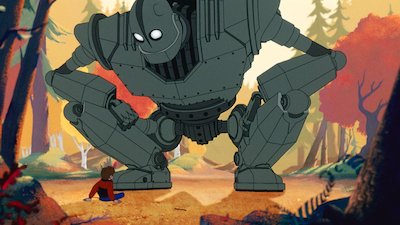
Directed by Brad Bird
Written by Brad Bird and Tim McCanlies (and Ted Hughes sorta)
Your average child-befriends-a-horse movie, but in this case the horse is a colossal amnesiac death robot and its the cold war and someone let bureaucrats have the launch codes. Wholesome is what it is. A family classic. AND ALSO, if you’re single, its a great way to screen for sociopaths. No properly functioning human male can defend himself against the last 5 minutes of this movie. If he’s not a blubbering fool during the end credits you should promptly change your phone number.
| Factors | (1‑5) |
| Improbably useful beatniks | 3 |
| Dietary fiber | 5 |
| This is totally what Maine look like. No seriously, it really is. Go look. | 4 |
| Peoples voices muffled by huge mustaches could be a great TikTok filter btw | 3 |
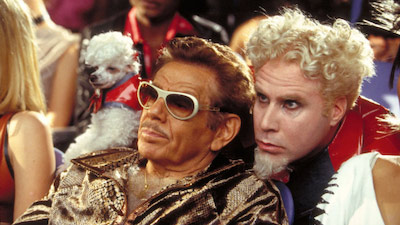
Directed by Ben Stiller
Written by Ben Stiller, Drake Sather and John Hamburg
Ever see The Manchurian Candidate? Same movie.
| Factors | (1‑5) |
| Not as good as Tropic Thunder | 4 |
| Haaa that part was funny though | 3 |
| But why didn’t they just show Tropic Thunder? | 3 |
| Hey remember in Tropic Thunder where the guy’s got an energy drink called Booty Sweat? | 3 |
| And then Ben Stiller kills that panda- man Tropic Thunder was RAW | 4 |
| I still can’t believe Robert Downey Jr got away with that | 5 |
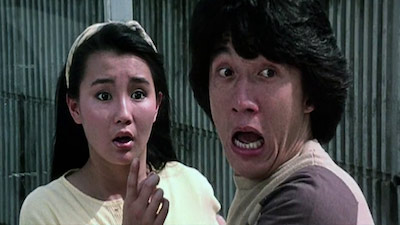
Directed by Jackie Chan
Written by Jackie Chan and Edward Tang
We all have this generally recognized understanding of what are the most absurdly dangerous jobs in the world; smoke jumper, astronaut, underwater welder, Alaskan crab fisherman, mob accountant, aspiring actress, those guys that put out oil fires, going hunting with your uncle, black person. The list does change slightly from era to era, and there was a period in the 1980s in which the most hazardous employment one could have was being an uncredited actor in a Jackie Chan movie. Hong Kong action cinema was then rapidly evolving from the kind of rigid, marionette-like back and forth martial silliness to the sophisticated, fluid, fast moving wire fu upon which all modern action choreography is based. During this brief period a Chinese stuntman’s job was unbelievably dangerous, and the loose assemblage of maniacs known internationally as The Jackie Chan Stunt Team had a replacement rate paramount to the French Foreign Legion. Police Story represents their era of peril at its zenith, as well as Chan at his acrobatic peak, which is another way of saying right before the toll of injuries forced him to start dialing it back a bit. The craziness starts early, the dialogue is kept respectfully brief and it all ends with an extravagant and unconventional repurposing of a perfectly good shopping mall. Arrive prepared to witness a disconcerting amount self-administered civil rights violations, most notably during a car chase for which there are no words in our language to accurately describe.
| Factors | (1‑5) |
| Nobody died | 5 |
| Well Wikipedia says nobody died | 2 |
| I don’t know man it sure looks like a couple of those guys died | 3 |
| Rewind and lets watch it on slo mo | 4 |
| Yeah there’s just no way | 5 |
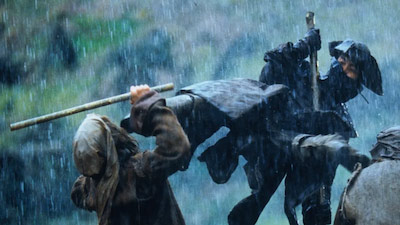
Directed by Christophe Gans
Written by Christophe Gans and Stephane Cabel
French Historical Werewolf Action Noir. Not a whole lot to say beyond that. They unfortunately lay it on pretty heavily with the mystical Native American sidekick trope, however in their defense they’re French and the guy does look great in oilskins. Also its been a couple years but I’m pretty sure Monica Bellucci plays a Vatican prostitute/assassin. I could have dreamed that part. Anyhow…
| Factors | (1‑5) |
| "I would be lying if I did not admit that this is all, in its absurd and overheated way, entertaining" - Roger Ebert | 4 |
| Did we mention the Monica Bellucci thing? | 5 |
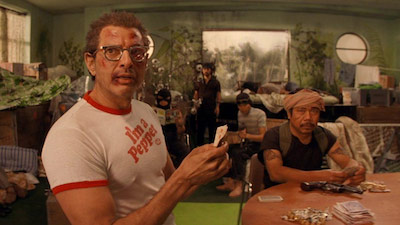
Directed by Wes Anderson
Written by Wes Anderson and Noah Baumbach
Ever visit a 6 year old relative for the first time? You’re standing there nodding, pretending to understand why its so important that you learn the names and emotional profiles of every single stuffed animal in the giant basket but truth be told you’d kinda prefer to deal with this part later, after you’ve had a couple drinks with your sister. Sometimes you need a minute to ready yourself for the immersive experience. In the Wes Anderson dimension it is the absence of that initial guided tour of his dioramas and bug collections that sets The Life Aquatic a bit apart from the others. This is a movie where the narrative gets up to speed right out of the gate, when Bill Murray threatens to kill one particular asshole shark in the ocean, and moves straight into a wonderful interplay between that trademark Anderson mis-en-scene-papering and the total chaos that regularly envelops his protagonists. It is a charming, fast moving film with an organic fluidity constituent of equal parts romance, exhaustion, bad parenting, insurance fraud and nautical warfare. Also it’s very clear that Jeff Goldblum is ad-libbing most of his lines. Hopefully he knows that some of us noticed.
| Factors | (1‑5) |
| People whose names you can’t quite remember | 5 |
| Wondering how we saw Jacques Cousteau in color on our parents' black & white TV | 3 |
| Throwback 1970s workplace safety violations | 3 |
| Colonialist stereotypes of Filipino maritime piracy | 1 |
| Colonialist stereotypes of interns | 4 |
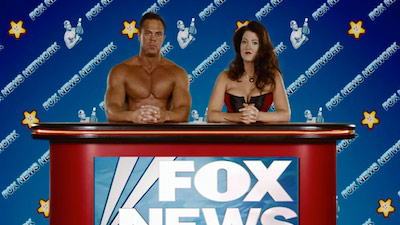
Directed by Mike Judge
Written by Mike Judge and Etan Cohen
I think Idiocracy is actually a Christopher Nolan movie. Hear me out for a sec. Firstly, I would not put it past Mike Judge to front a Christopher Nolan movie as his own. The man just has no rules. Secondly, although it is a passable comedy at best, and I recognize that this fact doesn’t go very far in support of my argument, it also has this time-and-reality bending, Nolanesque ability to rewrite itself as a terrific experience in the viewers memory. Last time I watched it I wrote “meh” on my arm with Sriracha, apparently in an attempt to communicate with my future self, and now that I am privy to this incredible secret I still don’t love the movie any less. I am filled with pleasure when thinking about it, when discussing it with others, when writing about it right now, and I will happily watch it again even knowing that its going to be a bit of a turd. This is because Idiocracy exists as 2 different movies dependent upon when you’re experiencing it; the bitter, sophomoric, intermittently funny jeremiad of the present or the hilarious vivisection of modern American life that lives happily in our memory. Now tell me again that Christoper Nolan isn’t behind this. I mean, who else could it be? If you haven’t encountered this movie yet, it goes like this: The most expendable guy in the army is paired with a random prostitute in a cryogenics experiment and they wake up in the future to find they are the smartest people on earth and have to fix everything. Sounds great doesn’t it? Yeah but it really isn’t. But later on it will be!! Thanks Chris, you’re the best!
| Factors | (1‑5) |
| Satirical movie version of a narcissistic moron president compares favorably to Trump | 5 |
| And would probably beat DeSantis in the primary | 5 |
| And then crush Newsom in the general | 4 |
| Could be worse, really | 4 |
| Alright I’m in. Gotta go buy a truck and some flags now I guess | 3 |
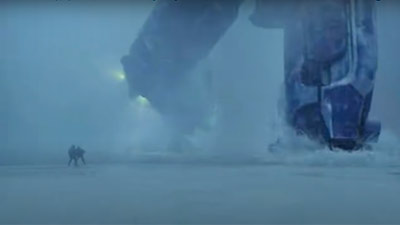
Directed by Guillermo del Toro
Written by Guillermo del Toro/Travis Beacham
The cool thing about watching Godzilla movies back then was that it was putatively difficult for little kids to come away with the wrong message. Superheroes in film are considered to be really damaging to their little minds because they directly equate being a good person with being an extremely violent person. Giant monster-on-monster violence on the other hand; the studies are a bit unclear. It is possible that the only real victims from this era were the family puppies conscripted into playing Mothra in the reenactments. So watching Pacific Rim is kinda liberating in that sense, like unnecessarily using all the towels in your hotel room or realizing that not leaving the house counts as carbon neutral. Its a gigantic freebie of crashing and smashing, a succession of vertical train wrecks where the boxcars are all full of seratonin and monster guts and none of the characters are complex enough to permit more than the most rarified empathy. Watch this and ever so briefly forget that you’ve ever cared about anything at all.
| Factors | (1‑5) |
| It’s not our fault / Oh boy we had this coming | 1:1 |
| Are we supposed to like Australians or not? | 4 |
| Someone’s really swinging for the fence with those names | 5 |
| Realistically over-the-top scientists. Those people are all wackadoo | 5 |
| Goo, loads of goo | 5 |
| All this really needs is a sacrifOh there it is. | 3 |
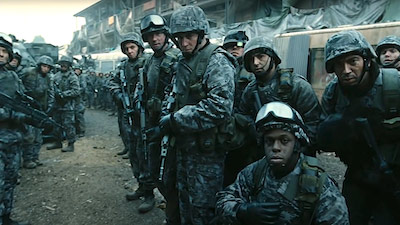
Directed by Alphonso Cuaron
Written by PD James/Mark Fergus/Hawk Osby/David Arata
PD James wrote Barnes & Noble grade mystery novels. How this story ended up emerging from her brain is a bit of a mystery itself. It is absolutely horrifying, and not like Slasher Movie horrifying or You Just Found A Picture Of Your Grandpa Saluting Heydrich At The Nuremburg Rally horrifying. Its more of a Oh God we would totally do this kind of horrifying. Its the near future one no one can make babies anymore, no one tries to do anything anymore, the nations of the world are in flames and England is an island fortress where everyone is just going through their days, waiting for it all to wind down until the last eye closes. A terrorist attack makes Clive Owen almost spill his beer. A reckoning is due. It might have been a coffee, doesn’t matter. None of it matters anymore.
| Factors | (1‑5) |
| Unnerving | 4 |
| Terrifying | 3 |
| Mind F*ing | 5 |
| Riveting | 5 |
| Redemptive | 5 |
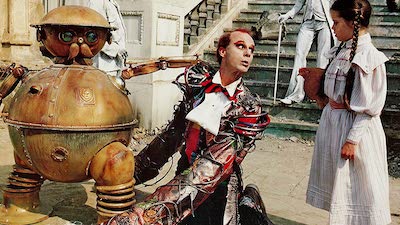
Directed by Walter Murch
Written by Frank Baum/Walter Murch/Gil Dennis
Its 6 months after the tornado, autumn 1899, the eve of the new century and the farm is still a mess, Uncle Henry is a listless alcoholic and Dorothy keeps talking about witches and magic lands and anthropomorphising the scarecrow. Auntie Em plays the only card she has left to play; electroshock therapy. So off Dorothy goes, back to OZ, now a desolate and terrible place with street gangs that wear ritual masks on their heads and have gurney wheels for hands and feet and roll around everywhere screeching at the top of their lungs. Someone has decapitated all the pretty maidens. There is a rumour going around the henchmen community that SHE has returned and She-Has-Brought-A-CHICKEN!! with her. Its two hours in a row of this craziness. Disney couldn’t kill the project because they needed it to extend their copyright on the OZ series, but enraged parents and child psychologists shortly did the job for them anyway. Even more disturbingly: 1) It was inspired in large part by a book entitled Wisconsin Death Trip. 2) It is considered to this day to be the most faithful of the OZ adaptations. Starring Fairuza Balk as Dorothy, Admiral Akbar as the electroshock machine, and another guy as a couch.
| Factors | (1‑5) |
| Shootiness/Explodiness | 0 |
| Food Allergies | 4 |
| Ad Hoc genetic modification | 3 |
| Lunchpail violence | 2 |
| Deep, unsettling weirdness | 4 |
| Your kids may need therapy after this | 3 |
| You may need therapy after this | 5 |
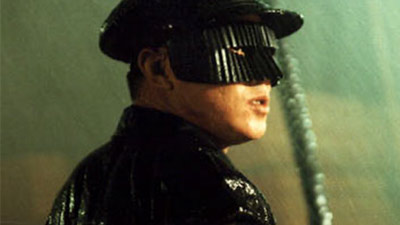
Directed by Daniel Lee
Written and Produced by Tsui Hark
A rare, perhaps singular example of the positive effects of dubbing a movie into English. Jet Li plays an unwilling superhero committed to hiding from the past via his library job, etcetera etcetera. As you may have guessed he is eventually attacked by his old gang of special forces laser criminals, the leader of which is possibly supposed to be Native American, and our hero is forced to trade in his glasses for a crepe paper Green Hornet mask, which is all he can come up with at the time, and the whole affair makes him kind of a dodgy employee for a while and puts a lot of stress on his relationship with his brutal cop friend. The magic comes with the US Version, which adds some perfectly enunciated profanity as well as a totally homemade 90’s Hip Hop scratch track that is just kiss-your-fingers exquisite.
| Factors | (1‑5) |
| Shootiness/Explodiness | 5 |
| Hottie Tottie Librarians | 5 |
| Villanous Westerners | 4 |
| Weaponized Compact Discs | 3 |
| Further weaponized Silly String | 3 |
| Ginger Abuse | 3 |
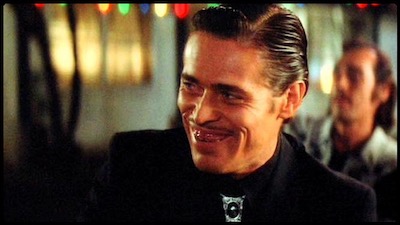
Directed and Written by David Lynch
Not to be fanboy about this; believe me I often find his films to be as frustrating as everyone else does, but I think the key to penetrating the Lynch oeuvre without smashing your playback device is to commit yourself to the understanding that he just doesn’t give a whit about the elements that are supposed tether us emotionally and analytically to films; stuff like narrative threads, plot structure, character development, normal human behavior… All he seems to care about is the feel that emanates from whatever is happening, like standing up in a rowboat, its those brief discomforting surges that drive his movies. He filmed Wild at Heart concurrently with Twin Peaks and if you’ve seen the latter you will recognize the absurd degrees to which this film’s characters and elements are stylized. Thematically though this movie functions a lot more like an oily, insidious remake of The Coens’ Raising Arizona, which had been released only a few years prior, and when considered together raise some questions about what the hell went on in the late 1980s that being pursued by evil and its not entirely your own fault was one of the more resonant cinematic themes of the era.
Nicolas Cage’s Sailor (just like Nicolas Cage‘s Hi) is some kind of vaguely southern everyman trying to escape both his past and his nature. He might just be what your average Florida Man sees in the mirror when he’s getting dressed in the morning; snakeskin jacket, an oblique and musical way of speaking, a clear-eyed moral vision and a perfectly logical reason to be smuggling an alligator out of a Walmart or stealing his toddler’s identity or trying to sell his neighbor’s mailbox to a picture of a cop on a billboard. Viewed holistically Wild at Heart is a horror film that murdered a road movie and then went around wearing the dead road movie’s sagging, bloody skin while introducing itself to people alternately as a romance and a black comedy. There are extreme levels of absolutely terrifying makeup, fashion and syntactic choices and also what in the halcyon days of 1990 was considered to be quite a bit of gore. And as memorable performances go, most people you interview will happily and wrongly tell you who is definitely The Most Evil character in film history, but no reasonable person would deny Willem Defoe’s Bobby Peru the honor of The Sleaziest. Bobby would indeed be honored too.
Remember that as with any Lynch movie, the narrative is only going to make sense if you’re slightly distracted or you go to the bathroom periodically, so prepare appropriately.
| Factors | (1‑5) |
| It's Lynch’s fault you’re cringing | 5 |
| It's your fault you’re cringing | 5 |

Directed by Rudolph Mate
Written by Russel Rouse/Clarence Green
This is virtually a PSA about the dangers of Jazz music. Also one of the very best of the noir era, the kind of movie in which people say things like I don’t think you fully understand Bigelow, you’ve been Merded. A guy goes to the big city for the weekend. He should’ve known better. Now he’s got a couple days at best to find out who dosed him with luminous toxin and why.
| Factors | (1‑5) |
| Confusion | 1 |
| Panic | 2 |
| Anger | 3 |
| Desperation | 4 |
| Merder | 5 |
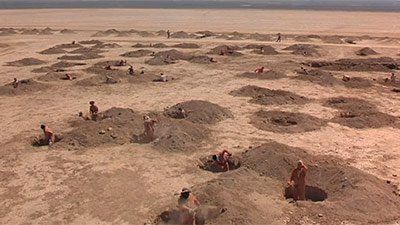
Directed by Andrew David
Written by Louis Sachar
There are a lot of confinement themes in the Disney filmography, not necessarily in the movies themselves but in the watching of them. I’m thinking of how the end credits of that last Pirates of the Caribbean made me feel like I had just been paroled and of the tearful jubilation that overcame me that night upon emerging into the parking lot. But Disney actually did make a prison movie. For kids. In Holes, these teenagers get sent to a juvie camp in the southwest and are subjected to vastly illegal labor practices by the camp’s road boss, “to build character” they’re told. Mr Sir explains it with the Manichean simplicity of your average Super PAC television ad,” You take a bad boy, make him dig holes all day in the hot sun, it turns him into a good boy”. Oddly the kids are not assuaged by this, and they carve out bits of time amidst the brutal necessities of their existence to find out what’s actually going on out there in the deep desert. Featuring some objectively hilarious character acting from Sigourney Weaver, Jon Voight, Tim Blake Nelson and Henry Winkler, as well as Shia Laboef, right before puberty did that thing it does so well.
| Factors | (1‑5) |
| Gen Pop violence | 3 |
| Canned fruits and vegetables | 4 |
| Tough love | 5 |
| Shootiness | 2 |
| Hit a barniness | 0 |
| Grown ups just askin’ for it | 3 |

Turns out we don’t reopen til the 9th. Don’t tell anyone we said so, but this might be a good time to cash in one of your FMLA days and watch Wong Kar-Wai’s hazy, meandering Hong Kong inner monologues, Chunking Express and/or Fallen Angels. Really any of his films will suit this purpose; Days of Being Wild if you can get it. They’re largely the same movie every time, yet still all quite unique, and they consistently portray a kind of person who doesn’t really exist in the real world; someone who is fascinatingly introspective and has plenty of free time to make that happen. The abundant loneliness available to Wong’s characters allows them to obsess about all kinds of cool things like product expiration dates and the ins-and- outs of being a hitman and the dark art of guerrilla Feng Shui. On a blazing July afternoon on the eternal beach that is our home sometimes the only thing you can do for yourself is to hide out, staple a blanket over the window and watch some movies.
| Factors | (1‑5) |
| Them skeeters is out there jest a waitin | 4 |
| A tumbleweed rolled by that was 60% Circle-K bags | 4 |
| You just caught yourself mouthing “what the F** you lookin at?” to a billboard | 4 |
| Strangers keep trying to give you water | 4 |
| Whatever it was you were going off about, it was the last straw | 5 |

Still closed. Technically its the supply chain’s fault. The distillation process for our signature Plum Nekkid Jaegertini is both time intensive and highly delicate and with all the specialty beakers and CRISPR tech that is required, not to mention keeping the blast freezers below 200 Kelvin just so the VR goggles don’t fritz out, and then on top of it all a whole season’s worth of DeKuyper Sloe Gin gets lost for 3 months at the Port of Los Angeles… look, what we all learned from Covid is that some things just won’t be pushed. We’re trying. It’ll be soon. On account of this being a Cinema Vendetta night we recommend that you stay home and watch Apocalypto, the extraordinary Mayan chase movie. OR, if you can get it, you could instead watch War of the Arrows, the nearly identical Korean flick that is exactly as good but doesn’t have anything whatsoever to do with Mel Gibson. Your call.
| Factors | (1‑5) |
| Folks just minding their own business | 4 |
| Everybody in their weird hats | 3 |
| Cleaviness | 4 |
| The old “lead em into an alpha predator” trick | 5 |
| Aaaaaaaaaaaand here comes the waterfall | 5 |
| Nuh Uh, you suckers in MY hood now | 5 |

This is not a movie. We’re closed cause we’re all going to Mexico. If you’re bored you should rent Night of The Iguana. It’s an exceptional film and the plot is more or less how these Mexico trips go for us anyway.
| Factors | (1‑5) |
| Shootiness/Explodiness | 0 |
| Clams/Castanets | 2 |
| Hammock Life | 4 |
| Carpools | 4 |
| Defrocking | 4 |
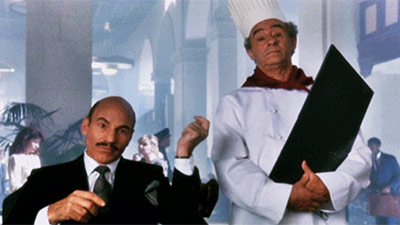
Directed by Mick Jackson
Written by Steve Martin
People are usually pretty negative when discussing the Surveillance State in the US. No one ever considers that it could be helpful. In Steve Martin’s L.A. County those big digital traffic delay signs on the interstate see and know everything about us… all the cars filing past, everyone alone with their hopes and anxieties, day after day… Sometimes, the right moment, the right person, the signs intervene. Harris Telemacher is a man overflowing with desperation for a change in his life and just a little nudge in the right direction is all he needs. This movie is a perverted love letter from Martin to his hometown and he brazenly enjoys himself for every minute of it. Consistently charming, with all kinds of recognizable actors.
| Factors | (1‑5) |
| Poor gun etiquette | 2 |
| Sarah Jessica Parker when she wasn’t annoying | 5 |
| Advent of the New Cruelty | 4 |
| The Chicken | 1 |
| The Duck | 0 |
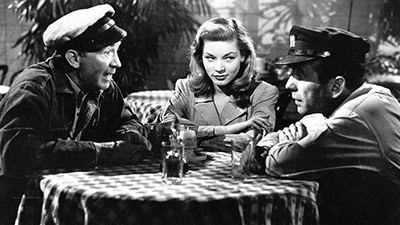
Directed by Howard Hawks
Written by Ernest Hemingway/Jules Fuhrman/William Faulkner
Because it is essentially the same movie as Casablanca this film never quite got the recognition it deserved. Hawks pressured Hemingway into adapting his novel for film and Hemingway of course wrote something entirely different. Eventually Faulkner got brought in to sanitize the parts objectionable to Vichy France and traded it for a thick air of suppressed anxiety and periodically salacious dialogue. Wainscoted with stars in front of and behind the camera, among its notable performances was the classic Rummy Sidekick archetype that Walter Brennan hand built for this film, stupid jokes and all. “Was you ever bit by a dead bee?” Only he would think that was funny.
| Factors | (1‑5) |
| Is not technically Casablanca | 5 |
| Hoagy Carmichael sings | 4 |
| Fog induced tension | 2 |
| Conspiratorial dining | 3 |
| Having/Having Not ratio | 2:5 |
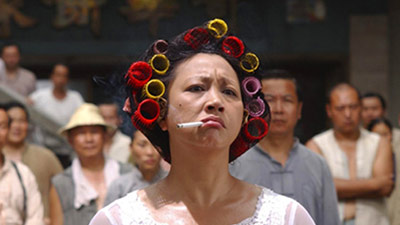
Directed and Written by Stephen Chow
If there’s nothing wrong with you it is probable that you’ve seen this movie at least once already. However we want to recognize that some spontaneous calamity may have prevented you from doing so properly the first time. Like maybe you had to go to a Bar Mitzvah not realizing how long those things can last and then the day spiraled away from you and the next morning it was still 2004 and you had to mail the DVD back to Netflix- who knows really, things happen. We just don’t want to judge. The film itself begins with a Bob Fosse number, which is always a good sign for a kung fu movie, and gets less predictable from there. It ends up being the story of a committed loser trying desperately to avoid reclaiming his virtue. Think of it as a tapestry of irreverence with hilarious stuff sequined randomly all over it. Preposterous characters, superlative physical comedy and top notch second-unit fu. This may be your last chance.
| Factors | (1‑5) |
| Seductive axe violence | 2 |
| Smoking as a force of good | 5 |
| Plot linearity | 3 |
| Underpants | 4 |
| Positive gay stereotypes | -3 |
| Gay stereotypes beating the snot out of criminals | 3 |
| Net gay stereotypes | 0 |
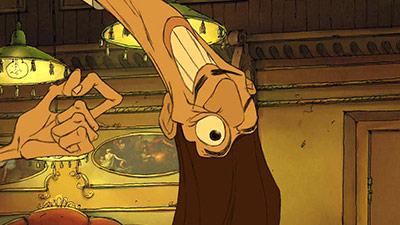
Directed and Written by Sylvan Chomet
Animated (might be subtitled, no one knows for sure)
Roger Ebert had a difficult time even describing this film, ultimately pointing out, almost inadvertently, that “most animated features have an almost grotesque desire to be loved.” If you stop right there this is the most precise assessment available of The Triplets of Belleville. It doesn’t need anyone to watch it at all, and that level of independence allows it to achieve great heights of deviance and equivalent charm. It is somewhat musical, yet the songs have no real words in them. What crumbs there are of real dialogue are even less productive. The actual words in the movie generally come from one’s own interior monologue; Whoa that dude has hella big thighs. So how come she’s not in the Tour de France? Whaaahahahahaha Lady Liberty looks like Honey Boo Boo! Wish my great aunts were that cool. Well the dog seemed to enjoy it so its okay I guess. Wait, were they Nazis? Cmon frog, get out of there buddy.
| Factors | (1‑5) |
| Shootiness/Explodiness | 2 |
| Cheerily violent old ladies | 5 |
| Plot linearity | 2 |
| Chitchat | -4 |
| Domestic weirdness | 4 |
| My kids may need therapy after this | 0 |
| I may need therapy after this | 0 |